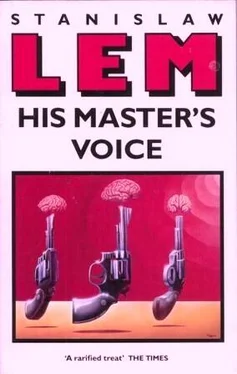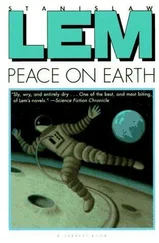In mathematics I searched for what I had valued in childhood, the multiplicity of worlds, which broke contact with the imposed world, but so gently that it was as if the latter had been stripped of its force — a force that lay within us as well, yet was hidden enough for us to forget its presence. Later, like every mathematician, I learned to my surprise how unpredictable and incredibly adaptable is that activity, which at first resembles a game. One enters into it proudly; without apologies and unequivocally one shuts out the world; with arbitrary propositions that rival, in their uncontestableness, Creation, one performs a definitive closure; this is to separate us from the vortex in which we are forced to live.
And lo, that denial, that most radical break, leads us precisely to the heart of things, and the flight turns out to have been an attainment, the desertion — an appreciation, and the break — a reconciliation. We make the discovery, then, that our escape was apparent only, since we have returned to the very thing we sought to flee. The enemy metamorphoses into an ally; we are purified; the world gives us to understand, silently, that only by means of it may we conquer it. Thus our fear is tamed and turns to joy, in that special refuge whose deepest interiors intersect the surface of the only world.
Mathematics never reveals man to the degree, never expresses him in the way, that any other field of human endeavor does: the extent of the negation of man’s corporeal self that mathematics achieves cannot be compared with anything. Whoever is interested in this subject I refer to my articles. Here I will say only that the world injected its patterns into human language at the very inception of that language; mathematics sleeps in every utterance, and can only be discovered, never invented.
What constitutes its crown may not be cut free from its roots, because it arose not in the course of the three hundred or eight hundred years of civilized history, but through the millennia of linguistic evolution: at the loci of man’s encounter with his environment, from the time of tribes and rivers. Language is wiser than the mind of any one of us, just as the body is wiser than the discernment of any of its units as it moves, self-aware and many-faceted, through the current of the life process. The inheritance of both evolutions, of living matter and of the matter of informational speech, has not yet been exhausted, but already we dream of stepping beyond the boundaries of both. These words of mine may make poor philosophizing, but that cannot be said of my proofs of the linguistic genesis of mathematical concepts, of the fact, in other words, that those concepts arose neither from the enumerability of things nor from the cleverness of reason.
The factors that contributed to my becoming a mathematician are complex, no doubt, but one major factor was talent, without which I could have accomplished in my profession no more than could a hunchback in a championship track-and-field competition. I do not know whether the factors that had to do with my character, rather than with my talent, played a role in the account I intend to give — but I should not rule out the possibility, for the importance of the affair itself is such that neither natural modesty nor pride ought to be considered.
As a rule, chroniclers become extremely honest when they feel that what they have to say about themselves is of monumental importance. I, on the contrary, with the premise of honesty arrive at the complete immaterialness of my person; that is, I am forced into an insufferable garrulity simply because I lack the ability to tell where the statistical caprice of personality composition leaves off and the rule of the behavior of the species begins.
In various fields one can acquire knowledge that is real, or the kind only that provides spiritual comfort, and the two need not agree. The differentiation of these two types of knowledge in anthropology borders on the impossible. If we know nothing so well as ourselves, it is surely for this reason: that we constantly renew our demand for nonexistent knowledge, i.e., information as to what created man, while ruling out in advance, without realizing it, the possibility of the union of pure accident with the most profound necessity.
I once wrote a program for an experiment of one of my friends. The idea was to simulate, in a computer, families of neutral beings; they would be homeostats, cognizant of their “environment” but possessing, initially, no “emotional” or “ethical” qualities. These beings multiplied — only in the machine, of course, therefore in a way that a layman would call “arithmetically” — and after a few dozen “generations” there continually appeared, over and over again, in each of the “specimens,” a characteristic that made no sense at all to us, a sort of equivalent of “aggression.” After many painstaking but fruitless checking calculations, my friend, at his wit’s end — really grasping at straws — began examining the most trivial circumstances of the experiment; and then it turned out that a certain relay had reacted to the changes of humidity in the air, and thus those changes had become the hidden producer of the deviation.
I cannot help thinking of that experiment as I write, for is it not possible that social evolution lifted us from the Animal Kingdom in an exponential curve — when we were fundamentally unprepared for the ascent? The socialization reaction began when the human atoms had barely given evidence of their first cohesiveness. Those atoms were a material strictly biological, a material made and prepared to satisfy typically biological criteria, but that sudden movement, that upward shove, seized us and carried us off into the space of civilization. How could such a start not have bound onto that biological material accidental convergences, much as a probe that, lowered to the ocean floor, scoops up from it, along with the desired object, debris and chance pieces of junk? I recall the damp relay in the sophisticated computer. And the process that engendered us — why, pray, must it have been in every respect perfect? Yet neither we nor our philosophers dare consider the idea that the finality and singularity of the existence of our species do not at all imply a perfection under whose aegis the species originated — just as such perfection is not present at the cradle of any individual.
It is a curious thing that the marks of our imperfection, which identify the species, have never been, not by any faith, recognized for what they simply are, that is, the results of uncertain processes; on the contrary, practically all religions agree in the conviction that man’s imperfection is the result of a demiurgic clash between two antagonistic perfections, each of which has damaged the other. The Light collided with the Dark, and man arose: thus runs their formula. My conception sounds ill-natured only if it is wrong — but we do not know that it is wrong. The friend whom I mentioned caricatured it; he said that according to Hogarth humanity is a hunchback who, in ignorance of the fact that it is possible not to be hunchbacked, for thousands of years has sought an indication of a Higher Necessity in his hump, because he will accept any theory but the one that says that his deformity is purely accidental, that no one bestowed it upon him as part of a master plan, that it serves absolutely no purpose, for the thing was determined by the twists and turns of anthropogenesis.
But I intended to speak about myself, not about the species. I do not know where it came from or what caused it, but even now, after all these years, I find within myself that malice, as vigorous as ever, because the energies of our most primitive impulses never age. Do I shock? Over many decades now, I have acted like a rectification column, producing a distillate composed of the pile of my articles as well as of the articles occasioned by them — hagiography. If you say that you are not interested in the inner workings of the apparatus which I unnecessarily bring out into the light, note that I, in the purity of the nourishment I have vouchsafed you, see the indelible signs of all my secrets.
Читать дальше












